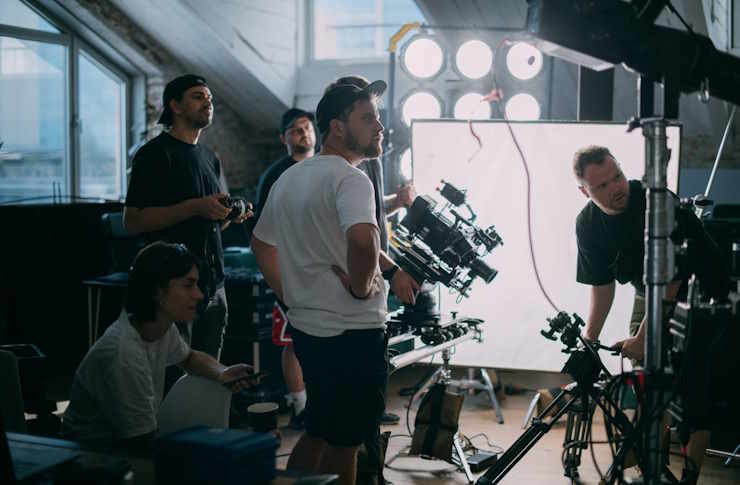Cinematography Courses: A Gateway to Visual Storytelling Excellence
Learn the art and science of visual storytelling through cinematography courses. From understanding camera angles and lighting techniques to editing and post-production, these courses equip students with the knowledge to bring scripts to life and create impactful films that resonate with audiences.

What Do Cinematography Courses for Beginners Cover?
Beginner cinematography courses establish the fundamental principles and technical skills needed to start a journey in visual storytelling. These courses typically introduce students to basic camera operations, shot composition, and elementary lighting techniques. The curriculum often includes:
-
Camera basics and equipment familiarization
-
Understanding exposure, aperture, shutter speed, and ISO
-
Fundamental composition principles such as rule of thirds and framing
-
Basic lighting setups and how light affects mood and story
-
Introduction to movement techniques with cameras
-
Elementary color theory and its application in visual storytelling
Most beginner courses emphasize hands-on practice with equipment alongside theoretical knowledge, allowing students to immediately apply concepts through practical exercises and small projects. This combination of theory and practice helps newcomers build confidence while developing their unique visual voice.
How Do Comprehensive Cinematography Courses Benefit Filmmakers?
For established filmmakers, advanced cinematography courses provide specialized knowledge that transforms technical skill into artistic mastery. These comprehensive programs delve deeper into:
-
Advanced camera movement techniques and equipment
-
Complex lighting scenarios and artistic lighting approaches
-
Visual storytelling strategies and scene construction
-
Color grading and digital imaging techniques
-
Collaboration methods with directors and production teams
-
Genre-specific cinematography approaches
Professional cinematography courses for filmmakers often incorporate case studies of influential films, workshops with industry professionals, and collaborative projects that simulate real production environments. These experiences help filmmakers develop their personal visual style while understanding the collaborative nature of film production. The networking opportunities in these programs can be as valuable as the technical and artistic knowledge gained, connecting participants with potential collaborators for future projects.
What Types of Cinematography Certification Programs Are Available?
Cinematography certification programs offer formal credentials that validate specific skills and knowledge in the field. These structured programs vary in recognition and specialization:
-
University-affiliated certificates from film schools and media departments
-
Industry association certifications such as those from the American Society of Cinematographers
-
Manufacturer-specific certifications for particular camera systems (ARRI, RED, Sony)
-
Specialized certificates in areas like drone cinematography, underwater filming, or virtual production
Certification programs typically require completion of a predetermined curriculum and may include assessment through practical assignments, written examinations, or portfolio reviews. While certification isn’t mandatory for working in cinematography, these programs provide structured learning paths and credentials that can enhance credibility, particularly for those without formal film school degrees. Many certification programs also offer continuing education opportunities to help cinematographers stay current with evolving technologies and techniques.
How Do Online vs. In-Person Cinematography Courses Compare?
The delivery format of cinematography courses significantly impacts the learning experience, with distinct advantages to both online and in-person options.
Online cinematography courses offer:
-
Flexibility to learn at your own pace and schedule
-
Access to instructors and content from anywhere in the world
-
Often more affordable tuition rates
-
Ability to revisit lectures and demonstrations indefinitely
-
Self-directed practice opportunities
In-person cinematography courses provide:
-
Direct hands-on experience with professional equipment
-
Immediate feedback from instructors during practical exercises
-
Collaborative projects with peers and networking opportunities
-
Access to professional studios and equipment that might be prohibitively expensive
-
Structured accountability and immersive learning environment
Many successful cinematographers combine both learning approaches, using online courses for theoretical knowledge and specialized techniques while seeking in-person workshops for equipment mastery and collaborative skills.
What Should You Consider When Selecting a Cinematography Course?
Choosing the right cinematography course requires careful consideration of several factors to ensure alignment with your goals and circumstances:
-
Learning objectives: Define whether you need foundational knowledge or specialized skills
-
Time commitment: Consider your availability for classes, practice, and assignments
-
Equipment requirements: Understand what gear you’ll need to access or purchase
-
Instructor expertise: Research the professional experience and teaching approach of faculty
-
Portfolio development: Evaluate how the course helps build professional work samples
-
Industry connections: Consider whether the program provides networking opportunities
-
Budget constraints: Balance educational quality with financial reality
-
Learning style: Reflect on whether you thrive in structured or self-directed environments
Many educational providers offer free introductory sessions or detailed syllabi that can help prospective students evaluate program fit before committing. Reaching out to program alumni can also provide valuable insights into the actual experience and post-program outcomes.
What Are the Typical Costs of Cinematography Courses?
The investment required for cinematography education varies dramatically based on program length, institution reputation, and delivery format.
| Program Type | Duration | Typical Cost Range | Notable Providers |
|---|---|---|---|
| Online Self-Paced Courses | 4-20 hours | $20-$300 | MasterClass, Udemy, LinkedIn Learning |
| Intensive Workshops | 2-14 days | $500-$3,000 | Maine Media Workshops, Global Cinematography Institute |
| University Certificate Programs | 3-12 months | $5,000-$20,000 | UCLA Extension, New York Film Academy |
| Degree Programs (BFA/MFA) | 2-4 years | $40,000-$200,000+ | USC School of Cinematic Arts, NYU Tisch |
| Manufacturer Certification | 1-5 days | $1,500-$5,000 | ARRI Academy, RED Camera Workshops |
Prices, rates, or cost estimates mentioned in this article are based on the latest available information but may change over time. Independent research is advised before making financial decisions.
Many programs offer payment plans, scholarships, or financial aid options. Additionally, some professionals may qualify for employer-sponsored education or tax deductions for work-related training. Investment in quality education typically correlates with access to better equipment, experienced instructors, and stronger industry connections—factors that can significantly impact career development in cinematography.
How Has Cinematography Education Evolved with Technology?
Cinematography courses have undergone dramatic transformation paralleling the digital revolution in filmmaking. Today’s programs integrate traditional principles with cutting-edge technologies, preparing students for an ever-changing industry landscape. Modern cinematography education now commonly includes:
-
Digital cinematography workflow management
-
Virtual production techniques using LED volumes and real-time rendering
-
Drone and gimbal operation for dynamic movement
-
High dynamic range (HDR) and large format digital capture
-
Integration with visual effects and post-production workflows
-
Immersive storytelling for VR and 360-degree experiences
This evolution ensures that cinematography students develop both timeless visual storytelling principles and contemporary technical skills demanded by today’s production environments. The most effective programs maintain connections with industry professionals to continuously update curriculum based on emerging practices and technologies, preparing cinematographers not just for current workflows but for adaptability throughout their careers.




